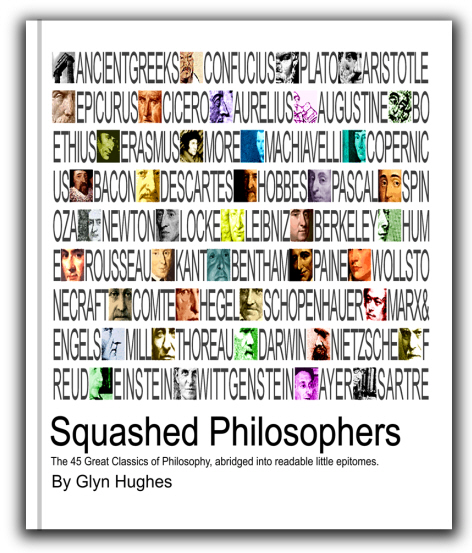

|
|
|
 Glyn Hughes “A man's brain is like a little empty attic, and you have to stock it with such furniture as you choose. A fool takes in all the lumber of every sort that he comes across, the skillful workman will have nothing but the tools which may help him. It is a mistake to think that that little room has elastic walls, it is of the highest importance, therefore, not to have useless facts elbowing out the useful ones.” - Sherlock Holmes The world is too complicated a place for us to make sense of. There's just too, too much in it. So we have to rely on abridgements of some sort. We get the economist to create an abridged version of the vast world of work and money in a few graphs and some simple charts. We employ the poet to get beauty and care into a few lines and the cartographer to boil places down to lines on a map. And so on. And we ask the philosopher to grind down the huge edifice of human understanding and rules-of-the-game into a few books or a handful of aphorisms. The results may be much smaller than the world, but they're still big. And philosophers are mostly appallingly bad writers, perhaps because they're telling of things which have never been put into words before, so they often end up a bit of a mess. To say the least. All the same, philosophers are important. Their things tend to push and poke the human world into various directions, so they're well worth knowing about. So here they all are. What's different this time is that they've been squashed up into nice little abridgements you can read in an hour. Proper abridgements, mind, not those nasty, soulless, (like the silly lists of facts ) you can buy from people who want to help you pass exams, they're not-re-writings, and they're not summaries. Here I've tried to give you the full beam of the story, the guts of the style and all those quotable quotes, in every word the words the original author wrote, in the order they wrote them. The original, just squeezed down to something readable, and one which sounds and smells and feels just like the book it is made out of. And something more - these Squashed Philosophers make it possible to read a whole lot as a single narrative, to do something more than you can do with the originals, to discover a Pisgah View of the whole grand thing in way normally impossible to ordinary mortals. Glyn Hughes glyn@sqapo.com The reader must know this is an abridgement, not the original. It should be based on The Definitive, sound original text, or the preferred translation It is the original words, in their original order Particular passages and phrases are famous for good reason. Keep some of the bad bits The abridgement must look and feel and smell just like the original 7,000 words is the reasonable upper limit for an intelligent adult  ISBN 9781326806781 |